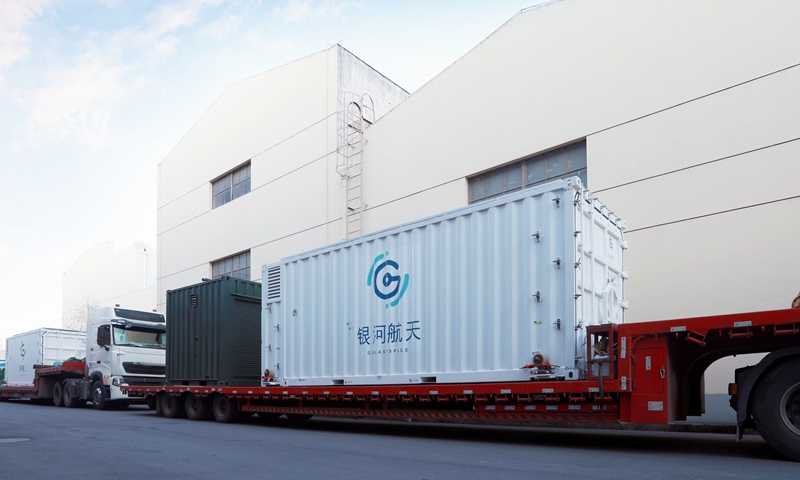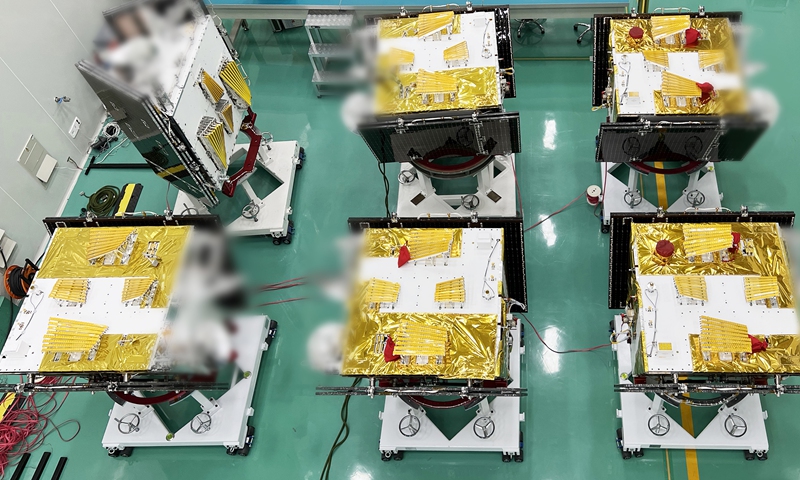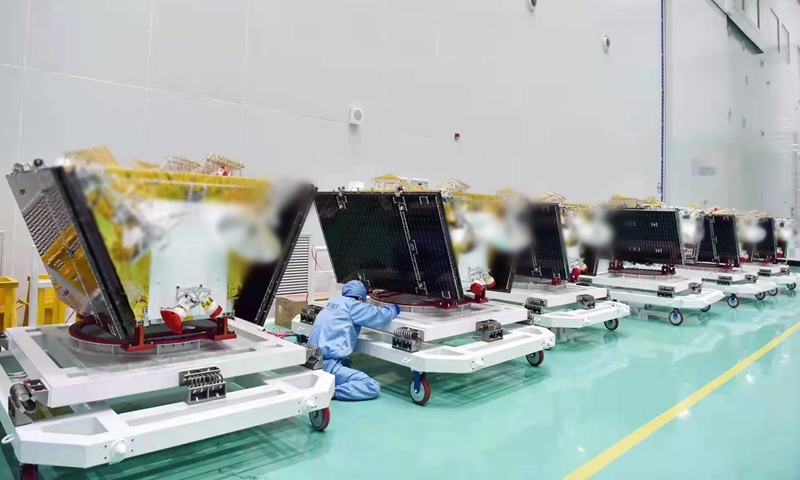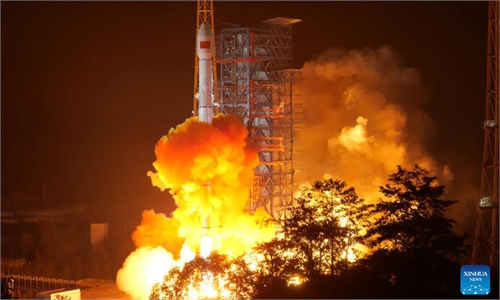China’s leading micro-satellites developer ready to launch 6 low-orbit communication satellites in spring

Photo: courtesy of GalaxySpace
GalaxySpace, a commercial micro-satellites developer headquartered in Beijing, said that it has completed manufacturing and examination of six low-orbit broadband communication satellites and is ready to launch them in the first season of 2022 via the Long March-2C carrier rocket.The achievement marked a first in the development of low-orbit broadband communication satellites in batches in China, GalaxySpace told the Global Times on Tuesday.
Within 11 months, GalaxySpace completed designing, assembly, testing and delivery of the six satellites, the company said. And the delivery of the batch of satellites has proven the small-scale batch production capability of the firm's independently developed satellite production line, declaring the beginning of China's low-cost development of satellites, the firm said.
GalaxySpace plans to deploy the satellites to build a testing network of satellite internet, codenamed "Mini-spider Constellation," which will be able to provide uninterrupted low-orbit satellite broadband communication services for more than 30 minutes at a time.
The six communication satellites have remote-sensing payload onboard. According to the firm, the development cost of a single satellite has been reduced to half of the firm's first satellite.
GalaxySpace is also building a satellite super factory in Nantong, East China's Jiangsu Province.

Photo: courtesy of GalaxySpace

Photo: courtesy of GalaxySpace
The satellite super factory is expected to be able to produce more than one satellite a day, significantly reducing the cost for satellite production in batches. GalaxySpace told the Global Times the construction of the factory is expected to start this year.China's top economic planner National Development and Reform Commission (NDRC) added "satellite internet" to a list of "new infrastructure" in a meeting in April 2020. The NDRC also provided a clearer definition of new infrastructures, with areas including satellite internet, 5G, Internet of Things and artificial intelligence to be targeted for investment and guidance.
Many industry insiders say the move aims at boosting innovation in the technology sector.





